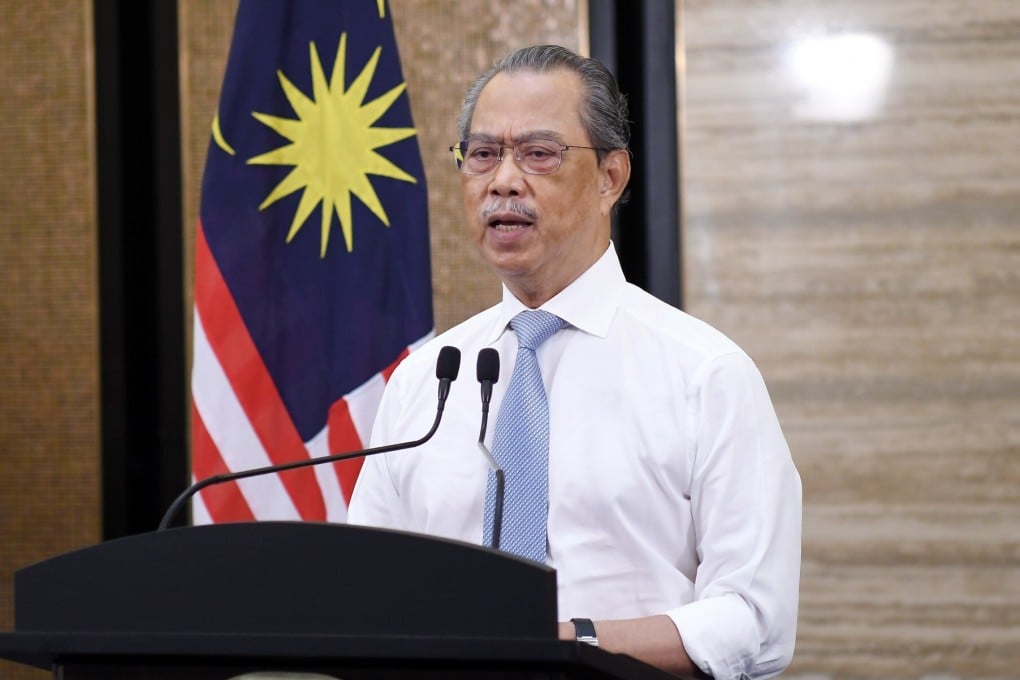Is Muhyiddin risking a constitutional crisis amid Malaysian king’s calls to reconvene parliament?
- Malaysia’s parliament was suspended in January after Prime Minister Muhyiddin Yassin declared a state of emergency over Covid-19
- Sultan Abdullah has issued three statements on the matter, as constitutional experts debate whether the monarch has the power to recall parliament

The National Palace’s statement on Tuesday on behalf of Sultan Abdullah Sultan Ahmad Shah followed a meeting earlier in the day between the constitutional monarch and the speakers and deputy speakers of the country’s bicameral parliament.
The king made a similar call on June 16 after he convened a gathering of the heads of the country’s nine royal households.
The sultans at that meeting issued a statement unanimously emphasising the need for parliament to sit to provide oversight over the government’s Covid-19 policies.
The repeated public reminders by the country’s royals, who traditionally abide by a convention of counselling the government privately, suggest that the royal institution “is very serious on its stance regarding this matter”, political analyst Awang Azman Awang Pawi told This Week in Asia.
With the government under pressure over a range of issues including its pandemic-era economic policy and flagging support among MPs, the king is reflecting the public’s demand for accountability, the University of Malaya professor said.